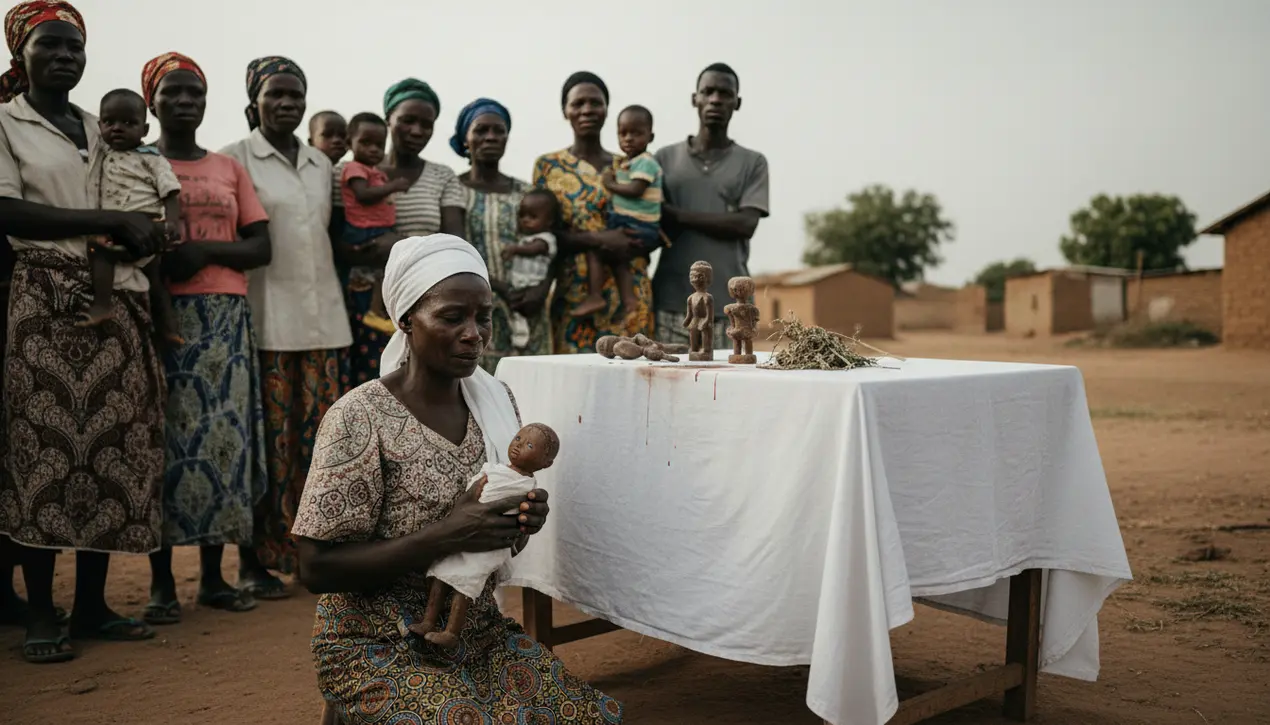
Otherlaw & courtsCriminal Cases
BBC investigates ritual killings for body parts in Africa.
EM
Emma Wilson
18 hours ago7 min read3 comments
In a chilling dispatch from the front lines of investigative journalism, BBC Africa Eye has pierced the veil on a shadow economy thriving on the most harrowing of human transactions: the procurement of body parts for ritualistic purposes. The investigation, conducted with immense personal risk, identified two self-styled 'juju' practitioners operating in the murky hinterlands where ancient superstition collides with modern criminal enterprise, individuals who coldly offered to source human components for a price.This is not merely a crime story; it is a profound human crisis, a gut-wrenching testament to the desperation and belief systems that can drive communities to unspeakable acts. The phenomenon, often dismissed in the West as macabre folklore, is a grim reality in several African nations, where the concept of 'muti' or medicine murder is tragically familiar to law enforcement.These crimes are predicated on a terrifyingly simplistic, yet deeply entrenched, belief that human body parts—limbs, genitals, blood, and organs—possess potent spiritual energy that can be harnessed to bring wealth, power, protection, or success in business and politics. The victims are overwhelmingly the most vulnerable: children, the homeless, and those with albinism, who are particularly targeted in East Africa for the mistaken belief that their body parts hold greater magical potency.The investigation's findings force a confrontation with a complex, painful truth. While poverty and lack of opportunity are significant drivers, creating a market where a human life becomes a commodity, the issue is inextricably linked to a crisis of governance and judicial impunity.Corrupt officials, under-resourced police forces, and a deep-seated fear of spiritual reprisals among witnesses often allow these networks to operate with brazen audacity. Human rights organizations have long documented this horror, pointing to cases from Nigeria to South Africa, where mutilated bodies are discovered with ritualistic precision, their parts harvested for a clientele that sometimes includes the wealthy and politically connected.The consequences ripple far beyond the immediate violence, seeding terror in villages, destroying families, and perpetuating a cycle of fear that stifles community development. To understand this is to look beyond the sensational headlines; it is to see a multifaceted tragedy where faith is weaponized, where economic despair meets spiritual hunger, and where the fight for justice is a battle not just against criminals, but against the very darkness of superstition and systemic failure. The BBC's courageous work shines a necessary, if horrifying, light into this abyss, demanding a global response that combines robust law enforcement, educational initiatives to debunk dangerous myths, and sustainable economic development to dismantle the very foundations upon which this evil trade is built.
#homicide
#body parts
#ritual killings
#juju practitioners
#Africa
#investigation
#featured
Stay Informed. Act Smarter.
Get weekly highlights, major headlines, and expert insights — then put your knowledge to work in our live prediction markets.
Comments
Loading comments...
© 2025 Outpoll Service LTD. All rights reserved.